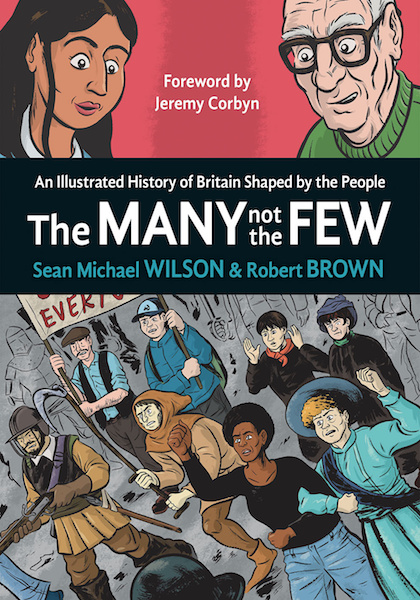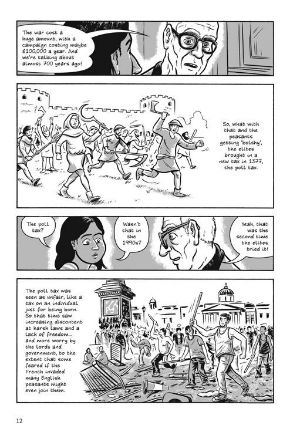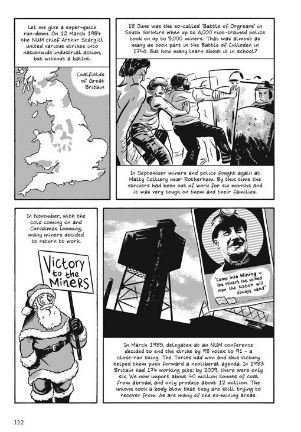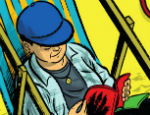To present an account of British working class history from the 14th century to the present day in around 125 pages and keep it both succinct and accessible, without drifting into superficiality, is quite a challenge. Writer Sean Michael Wilson and artist Robert Brown achieve just that in The Many Not the Few, a book subtitled An Illustrated History of Britain Shaped by the People. It’s a project we covered earlier this year when Broken Frontier attended the launch at the House of Commons and Labour Party leader Jermy Corbyn spoke about the book (see below).
Using the framing structure of a chat on working class and trade union history between Arushi and her former union representative grandfather “Granda”, The Many Not the Few jumps backwards and forwards between the present day duo and events being discussed. It’s a storytelling technique that allows a contemporary commentary on events, providing Wilson with an opportunity to draw together the strands of the past in order to explore and examine how it shaped the present. While Arushi and Granda’s conversation is by definition a narrative contrivance, it’s one that nevertheless ensures the book never deteriorates into dry fact listing; their endearing relationship and the manner in which the two characters spark off each other providing the reader with a sympathetic point of contact.

Moving through history and covering the Peasants’ Revolt, the Levellers, the Chartists, the emergence of the trade union movement and its brutal suppression in the Thatcher years, this is a comprehensive account that speaks to its target audience without ever patronising them. It’s perhaps heavier on text than is the trend in contemporary comics but anything less would be a disservice to the subject matter.
Robert Brown’s art perfectly complements Wilson’s detailed account with its clearly intricately researched attention to detail and Brown’s ability to distil the essence of events described in either single images or sequential passages. Brown is the creator of the autobio comic Killjoy, much admired at Broken Frontier, and here he brings one of the greatest strengths of that series – his eloquent visual characterisation – to The Many Not the Few‘s pages, allowing us to experience the despair, triumphs, losses and moments of joy that characterise the many depicted struggles on a far more immediate level.
From its portrayal of the exploitation of the working population, media vilification and the class structures that continue to oppress, The Many Not the Few succeeds in providing an accessible entry point into the subject matter for primarily a younger, teenage audience. Where it will disappoint some is in its approach to the European Union and Brexit. A one-page dismissal of the EU without counterbalance in the final third of the book is followed by a latter extended sequence near the end discussing the issue that is again weighted heavily towards pro-leave sympathies. It will of course depend entirely on personal viewpoints on the issue, but from my own perspective it’s a very unfortunate blip in a largely impressive book that otherwise presents the issues involved with lively pacing, clarity and an empathetic narrative framework.
Sean Michael Wilson (W), Robert Brown (A) • New Internationalist, £9.99
Review by Andy Oliver
















